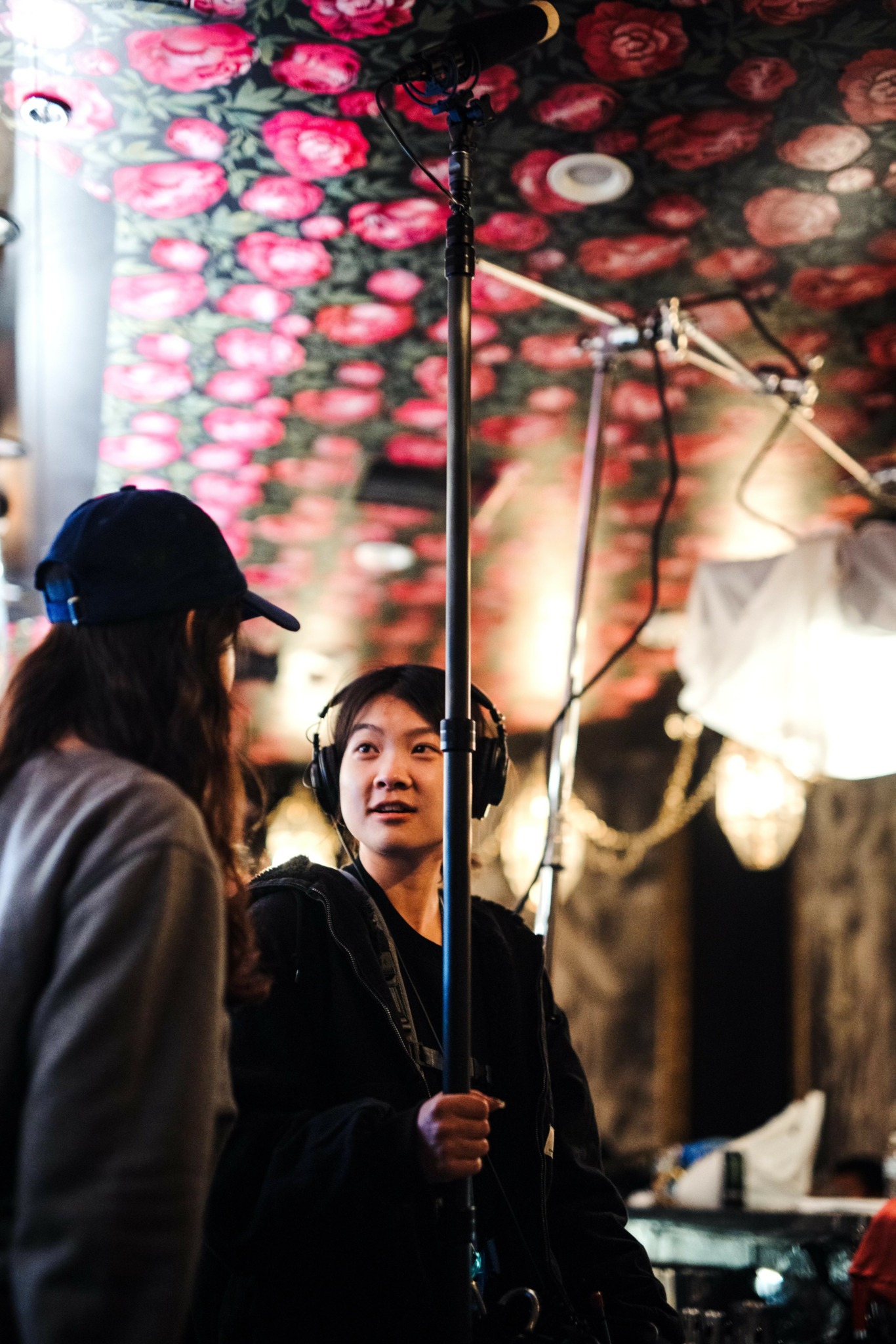We recently connected with Fangjian Li and have shared our conversation below.
Fangjian, looking forward to hearing all of your stories today. Do you feel you or your work has ever been misunderstood or mischaracterized? If so, tell us the story and how/why it happened and if there are any interesting learnings or insights you took from the experience?
During pre-production for a low-budget student film, I raised concerns about an important scene set to be shot near an airport. Knowing that constant aircraft noise would be an issue, I suggested we either find a different location or allocate part of the budget to rent better sound equipment, like advanced noise-canceling gear or lav mics for the actors. Unfortunately, due to the limited budget, the production team couldn’t secure an alternative location or provide extra funds for upgraded equipment.
Despite my warnings, we proceeded with the location as planned. On the day of the shoot, planes were flying overhead constantly, making it almost impossible to get clean dialogue. Each time I tried to raise the issue, the team insisted we just get through it and deal with the noise later, saying “we’ll fix it in post.”
In post-production, the team discovered that the aircraft noise completely overpowered the actors’ voices. Without the budget for ADR or advanced sound editing, there was no way to fix it, and the final scene was marred by the constant drone of planes.
The takeaway? Sound issues like this need to be considered early in pre-production. While I had communicated the problem upfront, budget constraints meant we couldn’t avoid it, reinforcing the idea that some issues can’t just be “fixed in post.”

Awesome – so before we get into the rest of our questions, can you briefly introduce yourself to our readers.
I’m a sound engineer, and I specialize in capturing high-quality audio for different forms of media. My journey into this industry wasn’t a straight line. I initially pursued filmmaking as a broader field because of my passion for movies, but as I delved deeper, I discovered that sound was the aspect of production that resonated with me the most. Sound is often the unsung hero of storytelling, and I found that it suited my personality and work style perfectly.
Over the years, I’ve specialized in capturing clean, authentic sound that enhances the emotional and immersive quality of any visual narrative. I’ve always believed that sound, while often underappreciated, has the power to make or break a scene. This belief drives me to ensure that every project I work on has sound that complements and elevates the overall production.
As a production sound mixer, I’m deeply involved not only on set but also in pre-production, where I work closely with the director, producer, and other key team members to identify and address potential sound challenges early on. Whether it’s planning for noisy environments, discussing specific sound requirements for different scenes, or ensuring the right equipment is available, I aim to set the project up for success from the start.
On set, I handle all aspects of sound recording, including dialogue, ambient noise, and any incidental sounds that help bring the world of the film to life. I’m meticulous in my work, ensuring that everything I capture is usable and of the highest quality. I often collaborate with post-production teams to provide wild sound or consult on how the audio can be shaped to best fit the narrative.
For you, what’s the most rewarding aspect of being a creative?
For me, the most rewarding aspect of being an artist and creative, particularly as a sound engineer and production sound mixer, is the invisible yet powerful role sound plays in storytelling. There’s something deeply fulfilling about capturing and shaping sound in a way that enhances the emotions, mood, and atmosphere of a film without drawing attention to itself.
One of the most rewarding moments is when everything aligns—the dialogue is clear, the ambient sounds are immersive, and every sonic detail complements the visuals perfectly. The audience may not consciously notice the sound, but they feel the impact. Knowing that my work helps to bring a story to life in such a subtle, yet profound way is incredibly satisfying.
Another rewarding aspect is the collaboration involved in film production. Being part of a creative team, working with directors, cinematographers, and other crew members to achieve a unified vision, is an experience I value. When everyone’s hard work comes together seamlessly, it’s a reminder of how integral sound is to the cinematic experience.

Are there any books, videos, essays or other resources that have significantly impacted your management and entrepreneurial thinking and philosophy?
Jiro Dreams of Sushi” (Documentary)
Although not directly related to sound or entrepreneurship, this documentary about Jiro Ono, a master sushi chef, impacted how I think about mastering a craft. Jiro’s dedication to perfecting even the smallest detail really inspired me to apply that same level of focus and care to my own work. It’s a reminder that excellence comes from continuous learning and refinement.
Hans Zimmer’s MasterClass on Film Scoring
Zimmer’s MasterClass offers deep insights into the emotional impact of sound and music in storytelling, which parallels my work in production sound. Beyond that, his approach to collaborating with directors and other departments gave me valuable management lessons—particularly in balancing creative vision with the technical aspects of sound.
Contact Info:
- Instagram: https://www.instagram.com/fangjianliabby/
- Facebook: https://www.facebook.com/profile.php?id=100040625796472
- Linkedin: https://www.linkedin.com/in/fangjian-li-525560174/
Image Credits
Daniella Jin/ Zheng Qu


